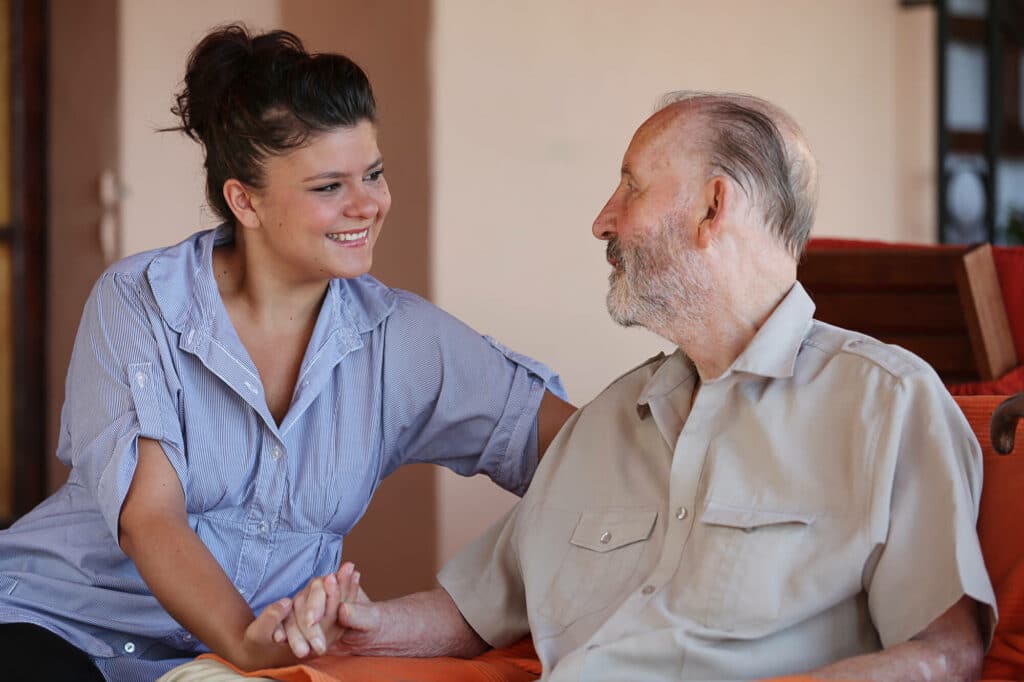In the United States, there are over 811,000 residents in elderly residential care communities.
Aging is a natural part of life, and given the above statistic, many Americans choose to spend their golden years in assisted living for a better quality of life. After all, they get quality care while still maintaining their independence.
But for many, they aren’t sure exactly when they should transition from completely independent living to assisted care.
So for you or your loved one, there may be one main question on your mind: when is it time for assisted living? If this is the case, then read on. We’ll discuss some important factors you should consider.
Mobility
Mobility is a huge factor to look at when you’re looking at independent vs assisted living. While some seniors at age 80 can still get around all on their own, others may have to rely on a walker or a wheelchair.
The latter two aren’t necessarily an indication that a senior has to transition to assisted living. However, if they’re always in pain and it takes a lot of effort for them to perform daily tasks, then they can certainly benefit from having a helping hand.
If your loved one has fallen recently, then this might be a sign that they’d benefit from assisted living as well. This is especially true if they live alone and you’re worried about them not getting prompt medical attention should they fall again. Of course, if they’re not ready for assisted living just yet, you can always consider installing a medical alert system for them.
Another aspect of mobility is how well they can get from place to place. If your loved one’s been in more car accidents lately, and if public transportation isn’t very feasible where they currently live, then moving to assisted living can help them not only retain their freedom, but also stay safer.
Health
Around 80% of senior citizens have at least one chronic disease, and 77% have at least two. While some are mild enough to manage on their own, some other diseases can be quite a burden to take care of on your own.
For example, if they have multiple medications to take, it can be difficult to keep track of. In assisted living, the caretakers can ensure all medications are taken at the right times so your loved one doesn’t have to worry about any of that.
Also, take note of their overall health and conditions. Are they relatively stable or have you noticed a decline in their wellbeing? Is it taking longer for them to get better when injured or sick?
If you feel like your loved one needs more help around the house to better manage their health, then assisted living can be a fantastic option. The additional help will probably be welcomed, especially if they’re starting to struggle. For example, they can receive assistance with eating, bathing, dressing, and toileting.
Another important point to consider is if they have dementia or Alzheimer’s. If you’re worried about your loved one getting confused and having no one around to help them, then senior living is great for this too. They’ll get to retain their independence while you get peace of mind knowing someone’s checking on them daily.
Tasks Around the House
While independent living is fantastic for people of all ages, there comes a time when household tasks change from achievable and pleasant to burdens.
For instance, washing the dishes, doing laundry, mowing the lawn, and weeding the yard are usually fun tasks that the elderly like to do to occupy their time and mind. But if you notice that your loved one needs to put in extra effort to complete daily tasks and it’s draining them, then it might be time for assisted living.
With assisted living, they get all the benefits of living in a regular house, but with a fraction of the work. They won’t have to worry about maintaining the property and can even get help with things like laundry, housekeeping, and cooking.
Mental Health
The elderly are more susceptible to loneliness, which can result in additional health issues. Often, they get to an age where they don’t have many of their original friends left in the local area.
You might not be able to visit them as much as you like and might even feel guilty about that. But you shouldn’t, as your loved one most likely wants you to lead a fulfilling life without worrying about them too much.
Assisted senior living can help the person you love to flourish. Not only will they be living in a community full of other seniors, but they’ll also be able to participate in fun activities and outings.
The social factor is what motivates many of the elderly to transition from in-home care to assisted living. When you see how happy your loved one can be in one of the best in-home care alternatives, you’ll be confident that this change was the right choice.
When Is It Time for Assisted Living? It Depends
So when is it time for assisted living? It all depends on the individual, what needs they have, and what they’re comfortable with.
In the end, it all comes down to listening to what your loved one wants. So make sure you sit down with them and have a thorough conversation about the pros and cons of assisted living.
If they do decide that senior living in Anchorage would be best for them, do your best to be there for them, every step of the way. Such a transition can be daunting, but if they have someone they live by their side, then it’ll help reassure them that they’re making the best decision possible.
Are you looking for the best assisted living community in Anchorage? Then look no further than Baxter Senior Living. Get in touch with us now to learn more about our services.

